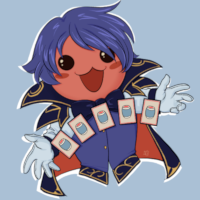- Posts: 4432
- Thank you received: 5177
Bugs: Recent Topics Paging, Uploading Images & Preview (11 Dec 2020)
Recent Topics paging, uploading images and preview bugs require a patch which has not yet been released.
Themes in Games
Gregarius wrote:
Actually, I was saying that the rules were the source of the theme. That's not the same as the author. I believe it is entirely possible that an author could be trying to make a game about the benefits of capitalism, but end up with a game about the corrupting influence of greed.VonTush wrote:
Gregarius wrote: VonTush claimed that games cannot have a theme, like books or movies, because they are dynamic rather than static. I disagree. The rules are static. They may not produce exactly the same situation every game, but they have the same potential every time.
So, you're saying that the author is the source of the theme - Based on potential.
When means the question that charlest asks would have to be no that there wouldn't be theme unless the author intended it. Correct?
So, no, author intent is not the sole source of theme.
So if the theme could have been slapped on later or even be completely accidental without the designer/publisher realizing it...how is theme in this sense useful to us? What do we do with that? Isn't it meaningless? Is a message worth deciphering and studying if it could have been scrawled randomly?
Please Log in or Create an account to join the conversation.
- Erik Twice
-

- Offline
- D8
-

- Needs explosions
- Posts: 2300
- Thank you received: 2650
Well, however it might have gotten there, it's there so you can't ignore it. Rocket jumping is a part of Quake, even if the designers didn't intend for it to happen and Ten Acres of Snow is broken even if Martin Wallace insists it isn't. Both seem important things to know about the games to me and worth deciphering and studying even if they weren't intended.charlest wrote: So if the theme could have been slapped on later or even be completely accidental without the designer/publisher realizing it...how is theme in this sense useful to us? What do we do with that? Isn't it meaningless? Is a message worth deciphering and studying if it could have been scrawled randomly?
This is how I see it too.Shellhead wrote: For most gamers, the theme of the Battlestar Galactic game is... wait for it... Battlestar Galactica. For Barnes (and others), the theme of Battlestar Galactica is perhaps paranoia.
Please Log in or Create an account to join the conversation.
- Michael Barnes
-

- Offline
- Mountebank
-

- HYPOCRITE
- Posts: 16929
- Thank you received: 10375
Think about this from another angle. What is Moby Dick "about"? Is it about Ahab and the white whale, or is it about obsession? The theme is obsession, not whaling ships, harpoons and sailors. Is Raiders of the Lost Ark's theme Indiana Jones, bullwhips, Karen Allen and the Lost Ark? Or is it really about reclaiming Judaica from both Nazis and the Middle East, Reagan-era imperialism and referencing serial adventures? The way we talk about theme in board games, it's all of the STORY material, the SETTING and the PLAYERS, that are the "theme". Not the actual meaning or subtext.
I think you may be correct that we can not necessarily apply or transpose the meaning of theme as it is understood in another medium to games, which is why this is a difficult issue to really corner into something approaching consistency and clarity.
But I don't think that undermines what I'm trying to get to...that some games can be "about" something other than what you do and what is shown on the table. That those things can illustrate actual "literary" (for lack of a better term) meaning. Labyrinth and War on Terror had very specific political messages and in the latter's case it was rife with very direct, participatory satire. Mall of Horror isn't really "about" zombies, it's about how selfish and crappy people can be to each other in times of crisis. Greed Incorporated isn't about making money and spending it on things- it's about irresponsible capitalism and the lack of accountability at the highest levels of corporate business.
Maybe the division is really between theme and subject matter.
Please Log in or Create an account to join the conversation.
- Michael Barnes
-

- Offline
- Mountebank
-

- HYPOCRITE
- Posts: 16929
- Thank you received: 10375
Shellhead wrote: For most gamers, the theme of the Battlestar Galactic game is... wait for it... Battlestar Galactica. For Barnes (and others), the theme of Battlestar Galactica is perhaps paranoia.
This is EXACTLY what I am getting at with all of this.
Please Log in or Create an account to join the conversation.
- san il defanso
-

- Offline
- D10
-

- ENDUT! HOCH HECH!
- Posts: 4623
- Thank you received: 3560
Maybe the division is really between theme and subject matter.
I think you're right about this. We're running into issues because the word "theme" is broadly understood in board gaming to refer to both things.
Please Log in or Create an account to join the conversation.
- Michael Barnes
-

- Offline
- Mountebank
-

- HYPOCRITE
- Posts: 16929
- Thank you received: 10375
I think that is what has happened, that theme has been assumed to be both subject and theme together.
But then again, there are probably many BSG players for whom the theme isn't anything more than BSG itself.
Please Log in or Create an account to join the conversation.
It seems clear from the posts that:
a) Not everyone is using THEME to mean the same thing
b) Using any *single* word for what we're describing is inadequate/problematic
And I really have no idea why I'm in an argument about where theme originates.
Please Log in or Create an account to join the conversation.
- Space Ghost
-

- Offline
- D10
-

- fastkmeans
- Posts: 3456
- Thank you received: 1304
However, I do think it also moves the discussion to a more "academic" (for lack of a better word) framework that can cause difficulty in nailing down the ideas, especially at the onset. I think that this initial discussion then leads to many situations where we feel that it is a little sloppy and confusing and throw our hands up and say "this is so broad, it is meaningless; in reality, it is the opposite of that -- it is narrow and specific, and I think has the potential to really elevate the understanding of board games, both from an experiential and design perspective (although, I think that some better terminology can be developed instead of "executive" and "conceptual" theme -- I think that the subdivision leads to more confusion, or at least the trade-off in confusion does outweigh what is gained in clarity).
In the comments from Michael's article from two weeks ago, he does say a couple of things I don't necessarily agree with.
1) Regarding Twilight Struggle Nope and nope. Both of those games express significant themes but with lots of text, pictures and strong settings to support the thematic material.
I don't think this is strictly true. While there is a lot of text and pictures, they are not necessary for Twilight Struggle -- all that is really necessary are the card effects. That is also true for the setting. The game would still have its strong theme -- which I define as the following three things (a) tension (b) subterfuge (e.g., outguessing your opponent), and (c) emotional lability. Each of these are established by the third turn at the latest. Truly a brilliant game -- and much less dependent on BSG or Dune on the bells and whistles of the setting to facilitate the theme.
2) Regarding Acquire Acquire's core tile placement mechanic really is pretty abstract in that you can't map it to a real world meaning. Nobody draws building lots at random.
I don't think mapping the mechanic to a real world meaning has anything really to do with the theme. It can be helpful, but it isn't necessary; consequently, the above statement really is meaningless. It only matters if the gestalt of Acquire transfers a theme itself -- which I think it does.
Please Log in or Create an account to join the conversation.
- Black Barney
-

- Offline
- D20
-

- 10k Club
- Posts: 10045
- Thank you received: 3553
Please Log in or Create an account to join the conversation.
Erik Twice wrote:
Well, however it might have gotten there, it's there so you can't ignore it. Rocket jumping is a part of Quake, even if the designers didn't intend for it to happen and Ten Acres of Snow is broken even if Martin Wallace insists it isn't. Both seem important things to know about the games to me and worth deciphering and studying even if they weren't intended.charlest wrote: So if the theme could have been slapped on later or even be completely accidental without the designer/publisher realizing it...how is theme in this sense useful to us? What do we do with that? Isn't it meaningless? Is a message worth deciphering and studying if it could have been scrawled randomly?
But Rocket Jumping and the Halifax Hammer are flaws/issues/features of the core of the game. Theme is not integral to a boardgame and it's not particularly suited to be expressed in this medium. I would argue you can not only ignore it, but most people will never even notice it.
Theme is relevant in literature and art because those mediums exist in their forms solely to deliver that message. Even if it's meant to be interpreted in many ways, it's still intentional and a goal of the creator.
Please Log in or Create an account to join the conversation.
 Games
Games














 How to resolve AdBlock issue?
How to resolve AdBlock issue?